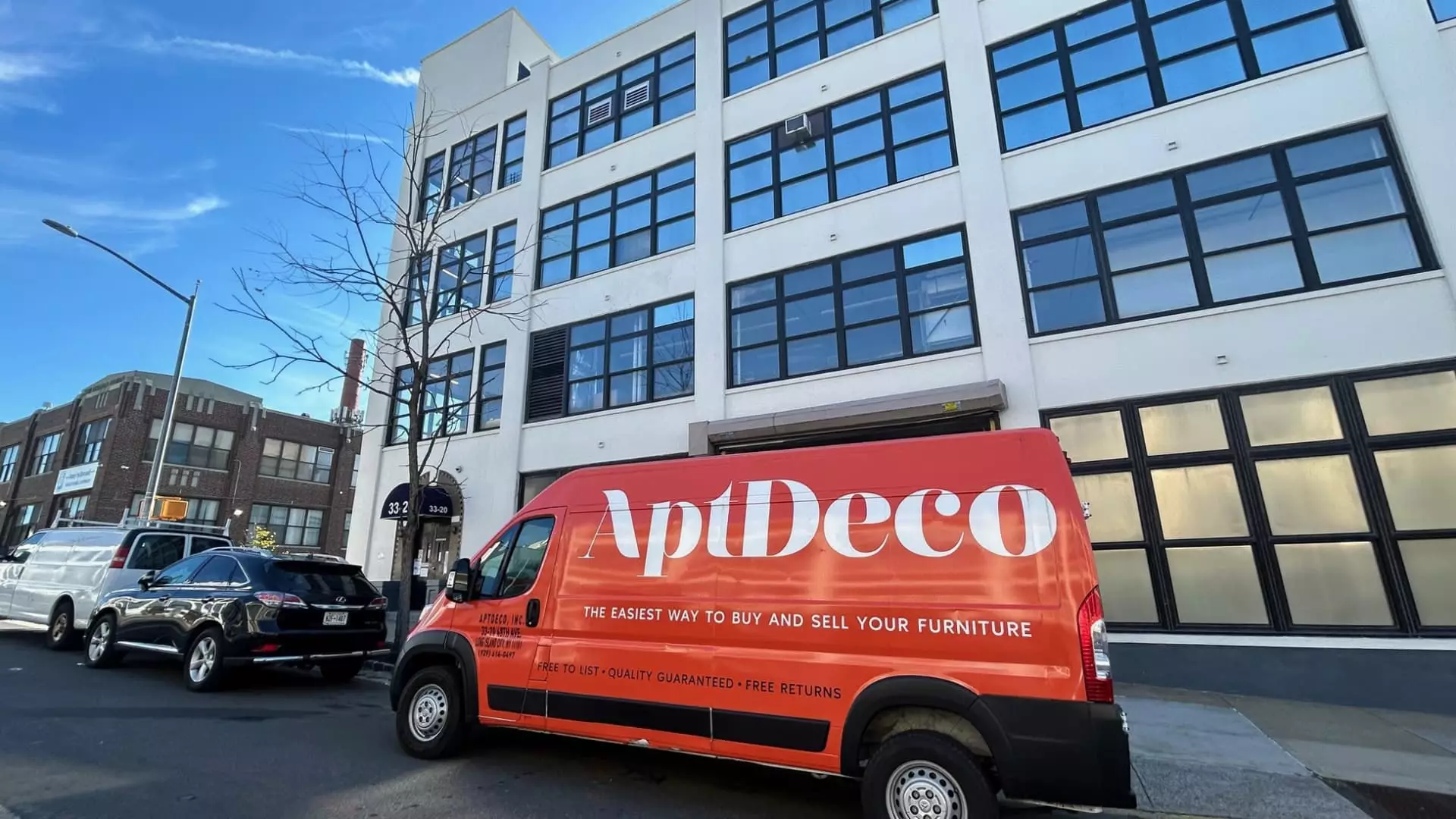In recent years, the issue of furniture waste has emerged as a significant environmental concern, particularly in the United States where approximately 12 million tons of furniture are discarded annually, as reported by the Environmental Protection Agency (EPA). This alarming statistic points to a larger problem of sustainable consumption, whereby a majority of discarded items are less than 15 years old, indicating a troubling trend of planned obsolescence. Addressing this issue requires not only awareness but also innovative solutions that can change consumer behaviors towards more sustainable practices.
The Dilemma of Furniture Disposal
The challenge of recycling furniture is multifaceted. Unlike smaller items such as clothing, the sheer size and weight of furniture make it difficult to sell, move, or recycle. Many individuals resort to platforms like Craigslist and Facebook Marketplace; however, these solutions typically end with a logistical burden on consumers, who must manage transportation and delivery themselves. This can lead to safety concerns, as inviting strangers into one’s home carries inherent risks. As consumers become increasingly aware of their environmental impact, the demand for simplified, efficient recycling options is more pressing than ever.
Enter AptDeco, a pioneering startup that is redefining the landscape of used furniture sales through its online marketplace model. Based in New York, AptDeco integrates logistics into its sales process by offering customers pickup and delivery services for secondhand furniture. This innovation addresses the logistical hurdles that often deter individuals from participating in the resale market. A significant part of AptDeco’s strategy involves collaborating with major retailers like West Elm and Pottery Barn to resell floor models or returned items, providing a seamless solution for both consumers and retailers.
Reham Fagiri, the founder and CEO of AptDeco, aptly summarizes the environmental impact of their service: “By extending the lifecycle of furniture, overall it’s just better for the environment, whether it be less wood being chopped out of forests to just the supply chain associated with producing that furniture.” This focus on sustainability resonates with a growing segment of environmentally-conscious consumers seeking ways to minimize their carbon footprint.
For traditional furniture retailers, the statistics around waste and returns are staggering. Returns generate significant costs and contribute to increased transportation emissions, leading to a pressing need for efficient reverse logistics. AptDeco provides a solution by immediately listing returned items for resale at the customer’s request, thereby circumventing the need to transfer these goods to a distribution center. Instead, the item is picked up directly from the returner’s home and delivered to the resale buyer. This process not only boosts efficiency but also significantly reduces the carbon footprint associated with transporting returned items.
The economic model embraced by AptDeco is heavily influenced by data. The company utilizes its internal resale data to price items competitively, enabling a quick turnaround that often sees items sold within a week. While consumers might find substantial savings—up to 50% on secondhand items—the service does come at a cost. AptDeco retains a commission ranging from 15% to 60%, based on various factors such as brand and item condition.
Impact and Future Potential
As AptDeco expands its services across the continental U.S., its potential to contribute to a circular economy becomes clear. Investment from firms like Initialized Capital points to a growing recognition of businesses that promote sustainability through their logistical operations. Zoe Perret, a partner at Initialized Capital, highlights the importance of adapting to climate change with innovative business practices, indicating that companies like AptDeco are likely poised for long-term success.
The impact of AptDeco’s operational model cannot be understated; the company claims to have offset over 19 million pounds of carbon dioxide since its inception—equivalent to removing roughly 6.5 million cars from the road. This notable achievement underscores the effectiveness of combining consumer convenience with environmental responsibility, fostering a culture of sustainable consumption that could reshape how we view furniture ownership in the future.
The growing issue of furniture waste presents both a challenge and an opportunity for businesses and consumers alike. By embracing innovative solutions like AptDeco, we can contribute to a more sustainable future, transforming the way furniture is bought, sold, and perceived in our society.

